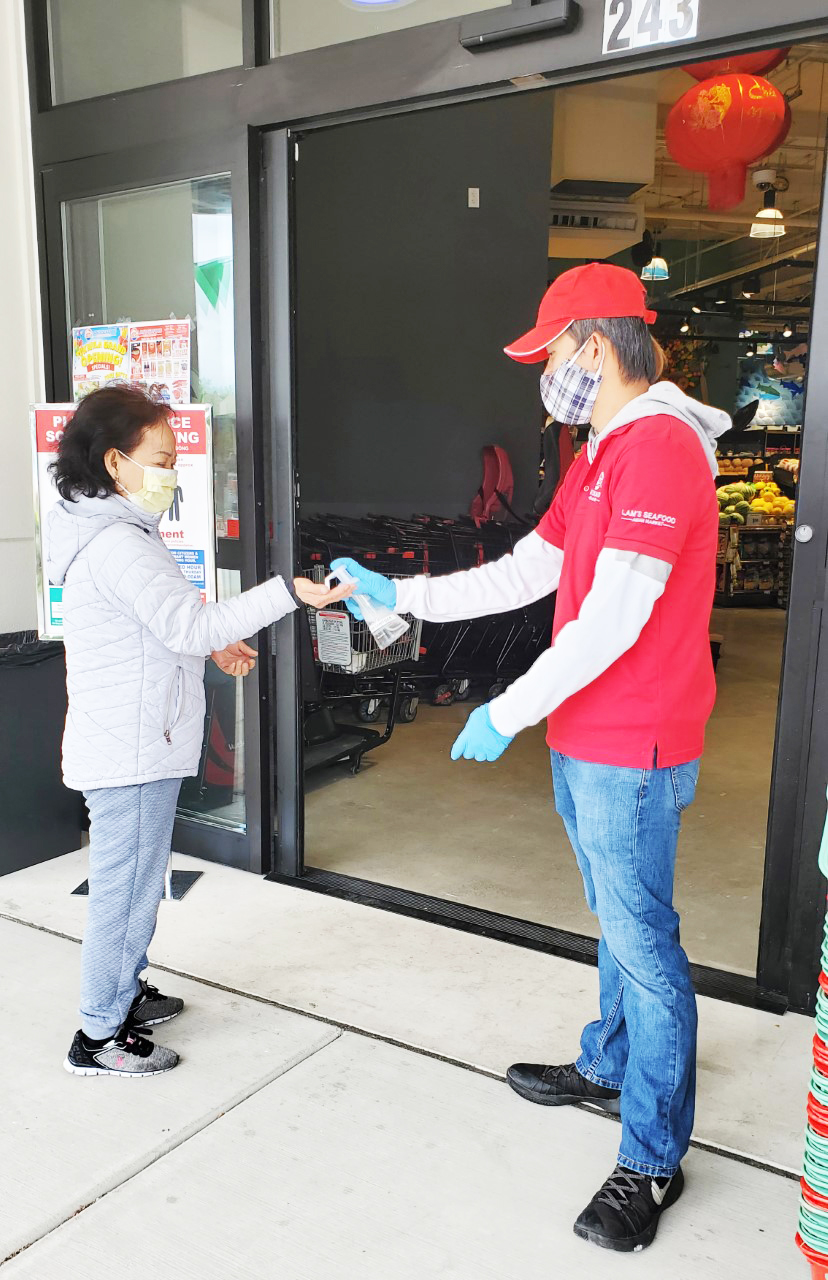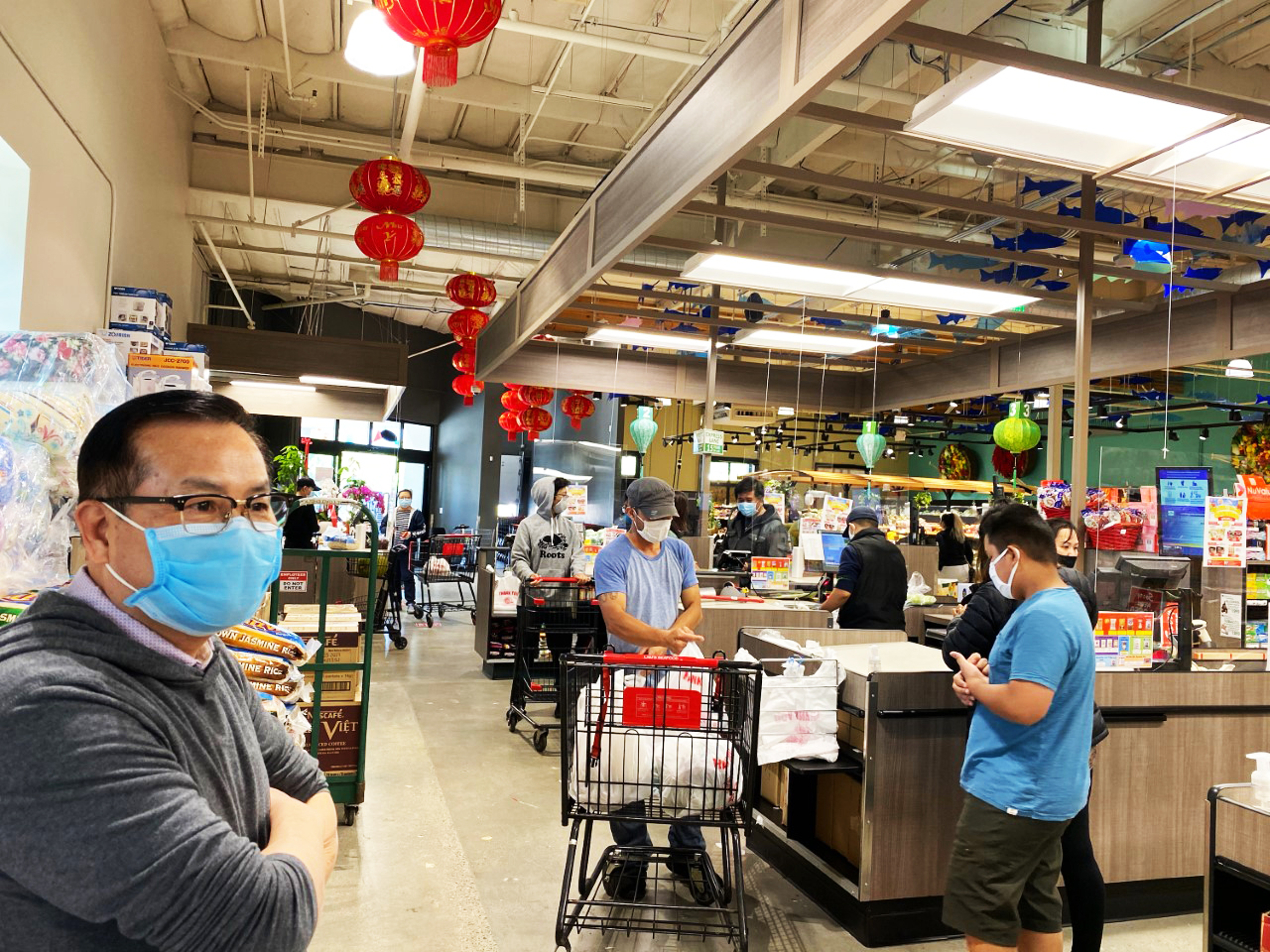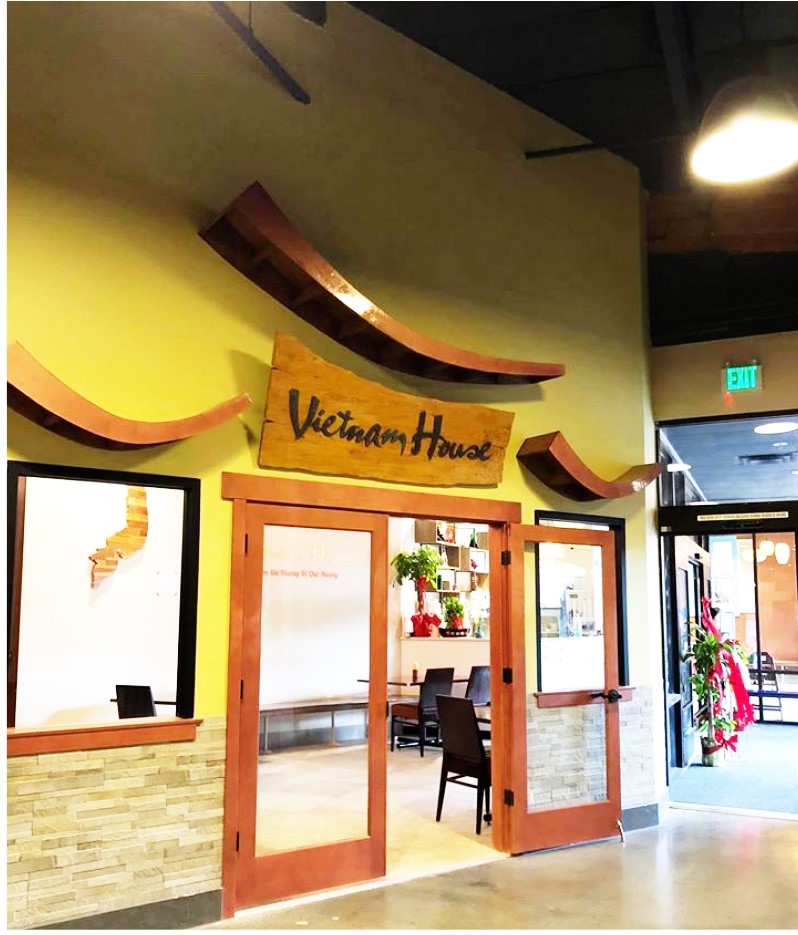Northwest Vietnamese News
As market/grocery shopping remains a necessity during this pandemic, many people have questions about how to shop safely. Many local Asian markets in the Seattle area want to reassure customers that there is currently no evidence of human or animal food or food packaging being associated with transmission of the coronavirus.

Lam’s Seafood, one of the local Asian grocery stores which recently opened in the end of May, had taken extraordinary measures to maintain safety during the pandemic. To ensure the safety of their customers and employees, Lam’s Seafood had developed their cleaning protocols very vigorous right on the first day, including:
- Limiting the number of customers shopping in their market to 100 customers at a time so that every customer still can practice social distancing while shopping and standing in any lines that may form outside the store.
- Reducing business hours to allow their employees to deep clean and restock.
- Providing the accessibility of antibacterial hand sanitizers for both of their customers and employees.
- Providing free hand sanitizer and vinyl gloves for every customer.
- Installing plexiglass barriers at every cashier check-out stand.
- The entire store and shopping carts are being sanitized every hour, all employees being required to wash hands hourly.
Not only Lam’s Seafood, many other Asia grocery stores in South West, South East Seattle or Tacoma and Kent areas, have been practicing these safety protocols as well. An owner of one of the local Asian markets shared that: “We are very grateful to remain open during the pandemic, but running our business during this time is really a challenge. We feel very sorry for everyone who has to wait in line before they can get in the store and that they also have to wear masks and keep a six feet distance while shopping inside the store. At this point we would rather be safe than sorry, it is not only to ensure the customer’s safety but also our employee’s safety.” Lam’s Seafood is running two locations and managing over 110 employees. Many employees choose to stop working; despite the store limiting occupancy and taking social distancing measures, they still have a sense of fear. Khanh Tran, an assistant grocery store, shared that “But at Lam’s seafood, they take care of their employees very well. That is the main reason that keeps me working here. Also, I want to work to give the best service for everyone during this time. The virus is still out there, but people need food.”

Mr. George Nguyen, the owner of Lam’s Seafood shared that “Fortunately, this is a 30,000 square foot market so our customers only have to wait inline on days that are very high traffic. Otherwise, they do not usually have to be in line to enter the market. Moreover, while doing their grocery shopping they can still practice social distancing.” Mr. George Nguyen has been working very hard in the past 35 years, serving the Vietnamese and all Asian communities. Within those 35 years, him and his wife, Kim-Le Nguyen, were also owners of Kim Nhung Market, located in Michigan. This is probably one the hardest years that they have experienced in their career as business owners.

Mr. Ta Ky, the owner of Vietnam House Restaurant which locates inside Lam’s Seafood market, shares his thought as a regular customer of Lam’s Seafood “Since Lam’s Seafood opened, they have maintained the safety protocols so that their customers can feel like they are not facing high risks of getting infected by the coronavirus while getting their groceries. That is the reason why they still have a very decent amount of customer flow, which helps their employees to be able to keep working and also for businesses like us to operate and serve our customers as well. Lam’s Seafood and our restaurant are glad that we can help keep people fed and provide the essentials that they need.”
Among other measures, these Asian grocery stores have asked employees to heighten wellness practices at work and home to protect themselves, their families and customers. Most of the Asian grocery stores are small businesses. Therefore, no matter how hard it is, they still have to open to provide the needs of the Asian community. Asian community is huge, so is their demand for Asian food and Asian household and kitchen essentials, including: cooking utensils, exotic and tropical fruits, Asian vegetables, herbs and spices, etc. “Not all heroes wear capes”, this is how people should view the employees who have been putting a tremendous effort to work hard and risk their lives every single day during the pandemic to keep those empty aisles perfectly stocked and cleaned for their customers.
Audrey Bach (with contribution of Jane Nguyen-NVTB)

